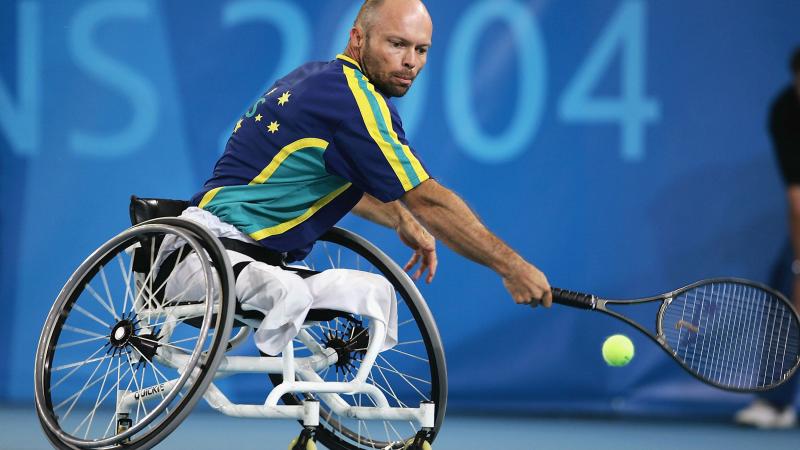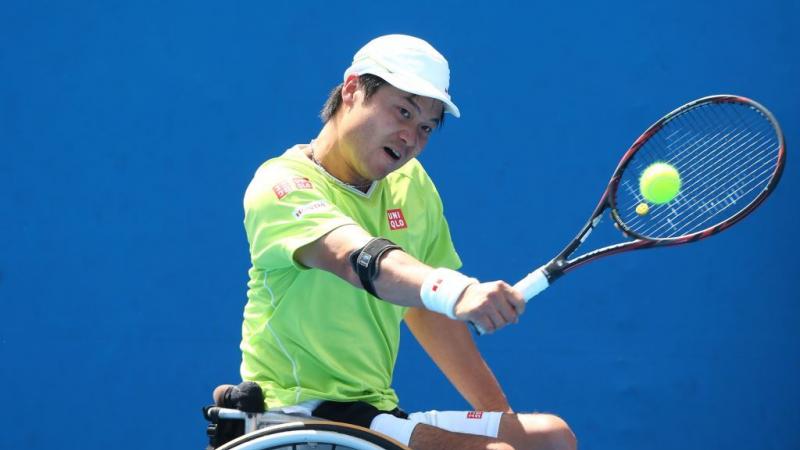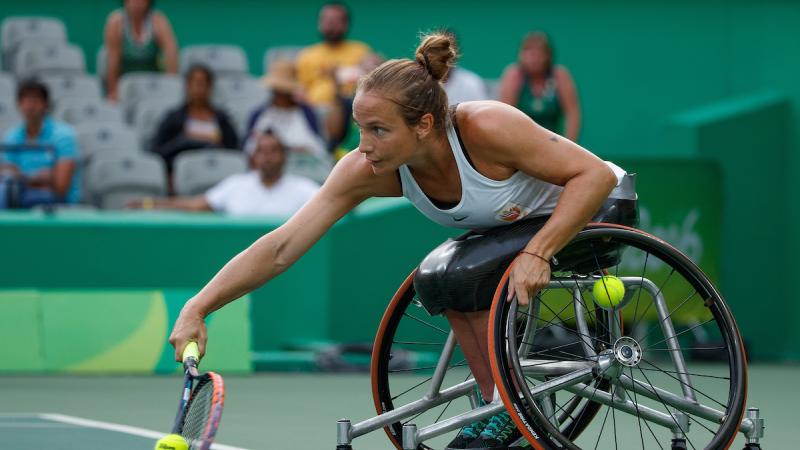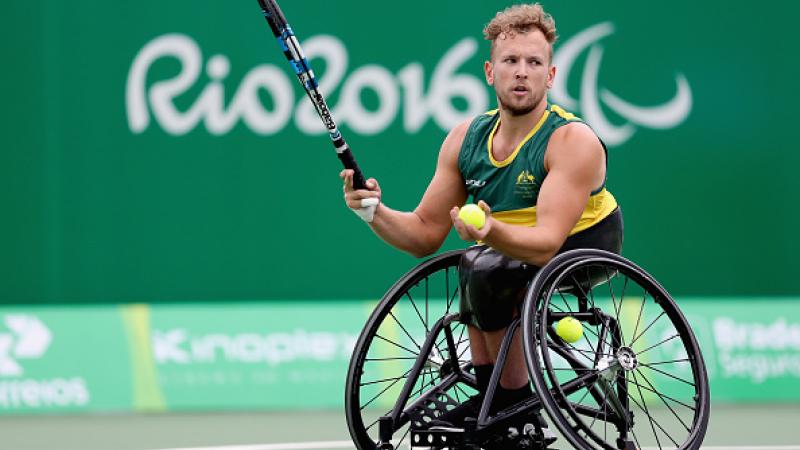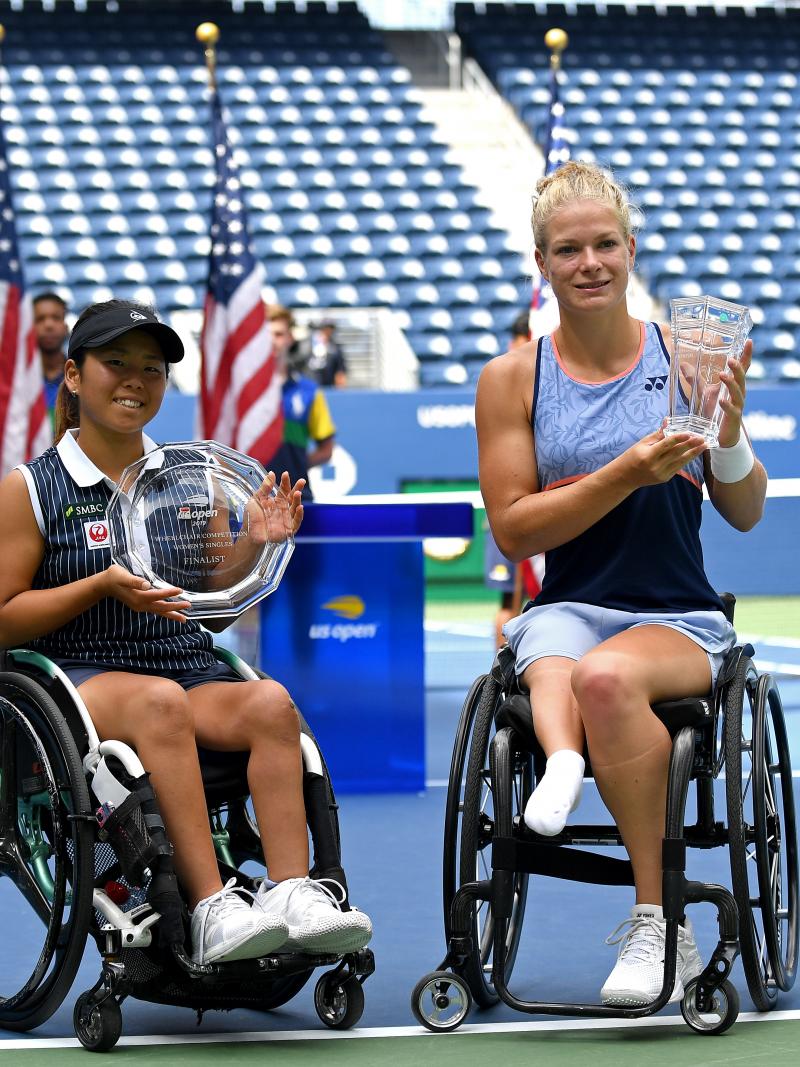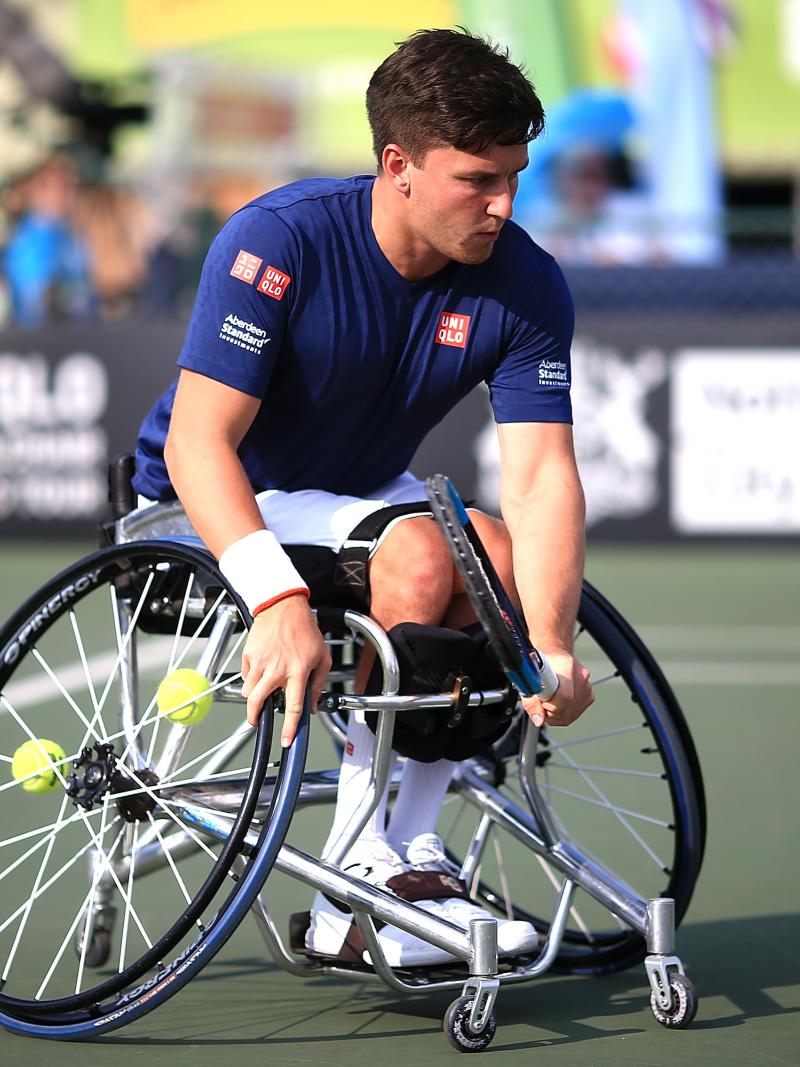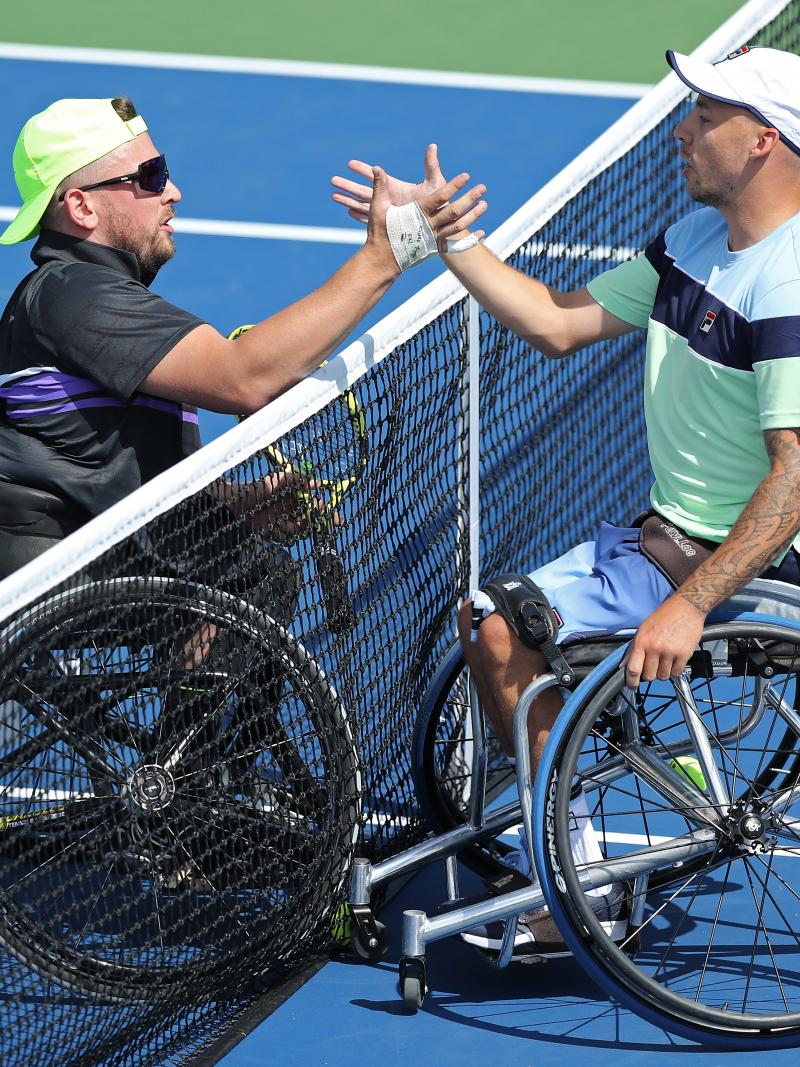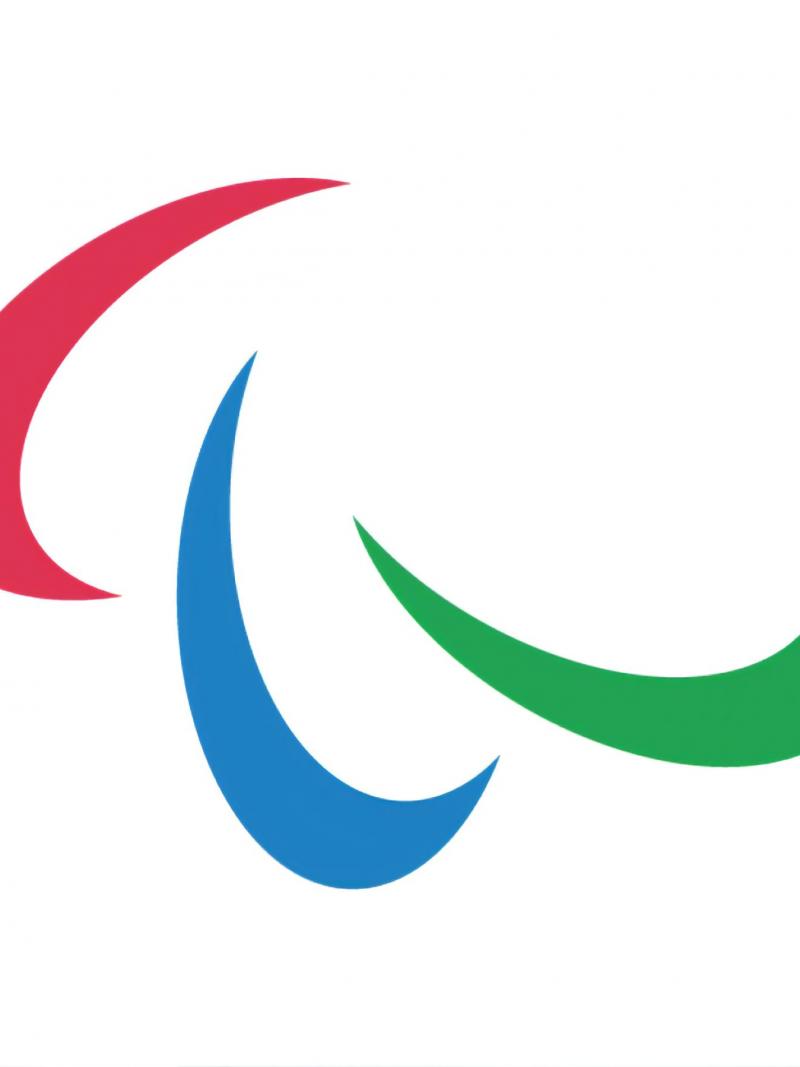Sport Week: Top moments in wheelchair tennis
Highlights from sporting legends at the Paralympic Games 14 Jul 2020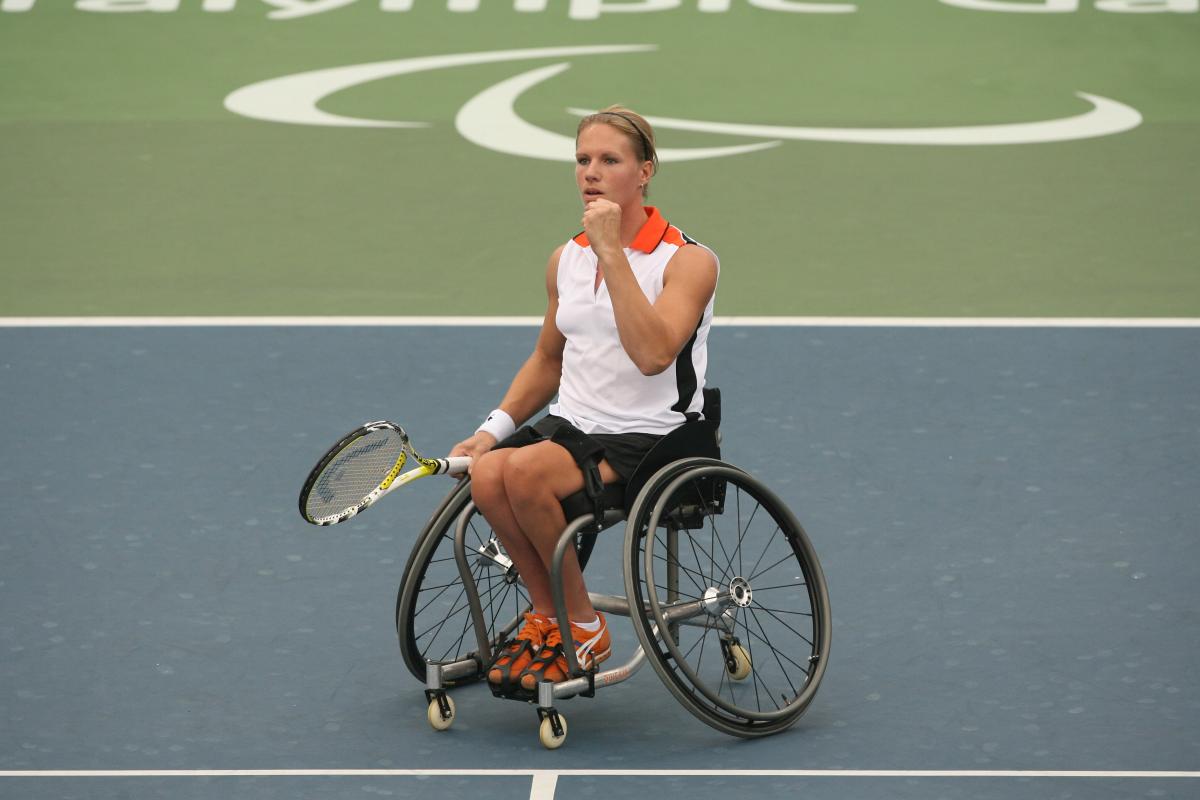
Wheelchair tennis has produced some of the most well-known Paralympic legends, and here are a few who have left their marks on history:
1. Legend in the making wins in front of home crowd
Australian David Hall was a local junior (what sport?) star on the circuit. In 1986, he was hit by a car and had both his legs amputated at age 16. During rehabilitation, he saw a photo of a wheelchair tennis player, which sparked a new motivation.
At 19, he played his first wheelchair tennis tournament and since then he has embarked on a 20-year phenomenal career that saw him win all major championships at least once and ranked world No. 1 in men’s singles for six years.
He was also inducted into the Tennis Hall of Fame in 2015.
Hall competed in four Paralympic Games, winning six medals across singles and doubles. His lone golden victory was the most memorable. After missing out on the podium at Barcelona 1992 and taking singles bronze in Atlanta 1996, he stole the show in front of home fans at Sydney 2000, beating Stephen Welch of the USA to clinch the Paralympic title.
2. The back-to-back man
Wheelchair tennis became a medal sport at Barcelona 1992, and no man had achieved the difficult task of back-to-back gold medals until London 2012.
Japan’s Shingo Kunieda, who had a spinal tumour and had used a wheelchair since age nine, had been playing wheelchair tennis from a young age. He made his Paralympic debut at Athens 2004, winning doubles gold. After he won the US Open in 2006 - his second Grand Slam title – Kunieda became world No. 1 and went on to win the Paralympic singles gold at Beijing 2008 where he beat Dutchman Robin Ammerlaan.
Kunieda had maintained his dominating status, winning two Grand Slams in 2011 but injury questioned if he could defend his title at London 2012. But in a thrilling showdown with France’s Stephane Houdet, Kunieda won in a second-set tiebreak and broke down in tears as he became the first player to win back-to-back Paralympic gold medals.
3. Going out with a bang
The Netherlands’ Esther Vergeer is arguably the best wheelchair tennis player of all time, and her final Paralympic Games at London 2012 proved just why.
Vergeer started to play wheelchair tennis at the age of 12 after a surgery on her spinal cord went wrong. Her dominance of wheelchair tennis began when she became world No. 1 for the first time in 1999. Her Paralympic debut at Sydney 2000 saw her win double gold, and she repeated the feat at Athens 2004. Four years later in Beijing, she captured another singles gold and doubles silver.
Before entering her final Paralympics in London, Vergeer had gone more than 13 years at No. 1 and unbeaten since 2003 with 465 consecutive victories. In the final, Vergeer defeated compatriot Anniek van Koot, which also extended her winning streak to an astonishing 470.
4. New Dutch queen
Jiske Griffioen was born with spina bifida and tried many Para sports before focusing on wheelchair tennis.
Griffioen won her first Paralympic singles medal at London 2012 - a bronze while her compatriot Vergeer claimed the gold beating Dutch ace Aniek van Koot.
Griffioen had for years been in the shadows of Vergeer but, the latter’s retirement after London 2012 opened up the floor for a new face in the women’s tennis.
Griffioen built her way up, becoming the No.1 singles player between June 2015 and July 2017. The top billing came after she won the second of her four Grand Slam singles titles. It was an all-Dutch showdown at Rio 2016 with van Koot, in which Griffieon won and later also added a doubles title to her name. Since then it has been a beginning of a dominating career.
5. Double-sport success
After becoming a Paralympic champion in wheelchair basketball at Beijing 2008, Dylan Alcott’s sporting career was on a high.
The Australian was born with a tumour around his spinal cord and an operation resulted in paraplegia. He started playing sports at a young age and rose quickly on the Paralympic scene.
In Beijing he won Paralympic gold with the Australian men’s basketball team and then went on to claim silver in the same sport four years later in London.
But he returned to tennis, his first love, and became what he had always dreamed of – a wheelchair tennis gold medal.
After dominating the quad division in 2015 and the early stages of 2016, Alcott was tipped to do well in Rio. But even he did not think he would surpass all expectations. In the space of 24 hours, he became a double wheelchair tennis gold medallist. He beat Great Britain’s Andy Lapthorne to claim Australia’s first quad singles Paralympic title.
He also became the first Australian wheelchair tennis gold medal winner since the great David Hall won singles success at the Sydney Games in 2000.

 Facebook
Facebook
 Instagram
Instagram
 Twitter
Twitter
 Youtube
Youtube
 TikTok
TikTok
 Newsletter Subscribe
Newsletter Subscribe

